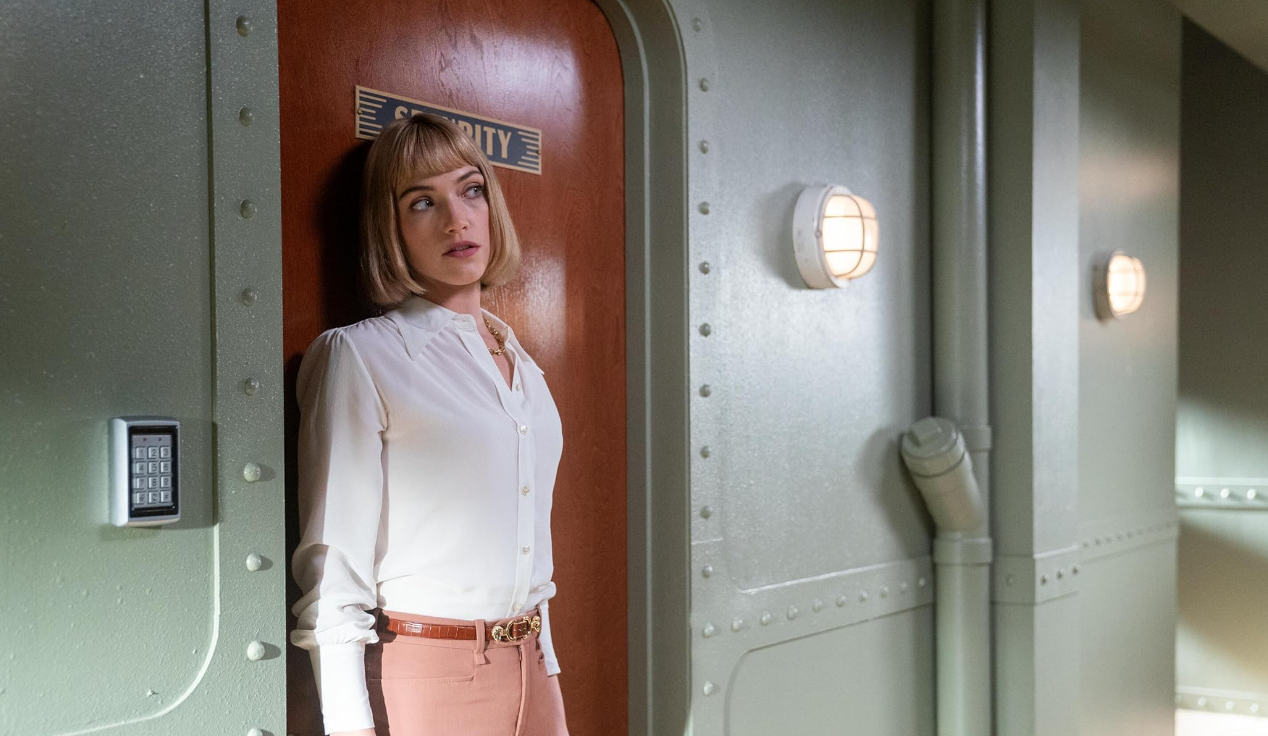Movies
[TIFF Review] ‘Gwen’ is a Gorgeous Slow Burn Reminiscent of ‘The Witch’

There’s a sense of creeping dread that permeates the narrative of Gwen. It’s contained in the mist that hangs at the top of the rock mountain the looks over the Welch village. It cuts through the muted color scheme of browns, greys and blacks. It’s hidden behind closed doors and frosted windows. And it’s embedded in the central relationship between the titular central character and her secretive, stern mother.
Gwen is reminiscent of The Witch in many ways. For some that’s the highest compliment; for others, that’s a warning to steer well away (for the record I fall into the former camp). The film offers a sumptuous visual viewing experience (call it gothic horror adjacent) and Gwen’s period setting, with its ornate costuming and strict religiosity, is a highlight. This is a world where everything of significance is repressed and swept under the rug, waiting to return in the most horrific way possible.
The film opens like a dream: Gwen (Eleanor Worthington-Cox) and her younger sister Mari (Jodi Innes) play a game of blindfolded keep away in an isolated scenic valley, but the skies overhead are grey and threatening. The sisters’ frivolity is quickly undercut when they return home to a tongue lashing by their mother Elen (Maxine Peake) about neglecting their farm duties and burning the meager dinner soup. Life on the farm is hard and tiring, especially with their father away indefinitely at war, and the mining company aggressively pressuring them to sell the land. Then come the calamities: rotten produce, dead livestock and, most problematically, a mysterious malady that leaves Elen bedridden.
Writer/director William McGregor repeatedly stacks the deck against his young heroine, forcing Gwen to endure every kind of disappointment and disaster imaginable. This a world that is unfavorable to every facet of her life: the family is punished because their farm is outdated in a world on the cusp of the industrial revolution and their status as women marks them as easy prey in a male-dominated society.
McGregor’s coup de grace is conflating the mysterious circumstances befalling the farm as either subterfuge or witchcraft. The latter option is embodied specifically in the tense relationship between mother and daughter as the headstrong Gwen butts heads with her authoritarian mother. This adds another dimension to the film by positioning conflict both outside and within the domestic unit.
Having a teenager at the center of the narrative also enables the film to subtly but critically question who has power and agency. As more and more responsibility falls on her young shoulders, Gwen veers into tragedy: here is a capable, opinionated girl forced to become an adult in a world that neither respects or validates her. And yet somehow the family has to survive.
All of this would be nearly unendurable without such a capable actress at the helm. Worthington-Cox is captivating as Gwen – her performance is deeply layered, shifting from vulnerable to headstrong to terrified; it is as assured as Anna Taylor-Joy’s in The Witch. Nothing good happens to the character and it is a testament to Worthington-Cox that you can’t help but cheer for some sliver of hope to brighten her grey world.
Visually Gwen cleverly blends tropes from the Western frontier film with gothic horror. The cinematography, particularly the isolated and threatening landscape of the town caught in the shadow of the mines, is stunning and atmospheric. So too are the film’s most explicitly horrific elements: Gwen’s recurring nightmares of her mother, accompanied by the lingering creak of doors on the soundtrack and slow tracking investigative shots into the dark. Although the film is hardly gory, McGregor and his production crew deftly craft a great deal of tension, particularly in the lead-up to the grim bloody final conclusion.
Clever, beautiful and well-acted, Gwen proves to be an unexpected delight. It’s a slow burn, but one worth seeking out.

Movies
‘Drop’ – Violett Beane Joins the Cast of Christopher Landon’s New Thriller

Christopher Landon (Happy Death Day, Freaky) is staying busy here in 2024, directing not only the werewolf movie Big Bad but also an upcoming thriller titled Drop.
The project for Blumhouse and Platinum Dunes is being described as a “fast-paced thriller,” and Deadline reports today that Violett Beane (Truth or Dare) has joined the cast.
Newcomer Jacob Robinson has also signed on to star in the mysterious thriller. Previously announced, Meghann Fahy (“White Lotus”) will be leading the cast.
Landon recently teased on Twitter, “This is my love letter to DePalma.”
Jillian Jacobs and Chris Roach wrote the script.
Michael Bay, Jason Blum, Brad Fuller and Cameron Fuller — “who brought the script in to Platinum Dunes” — are producing the upcoming Drop. Sam Lerner is an executive producer.
THR notes, “The film is a Platinum Dunes and Blumhouse production for Universal.”














You must be logged in to post a comment.